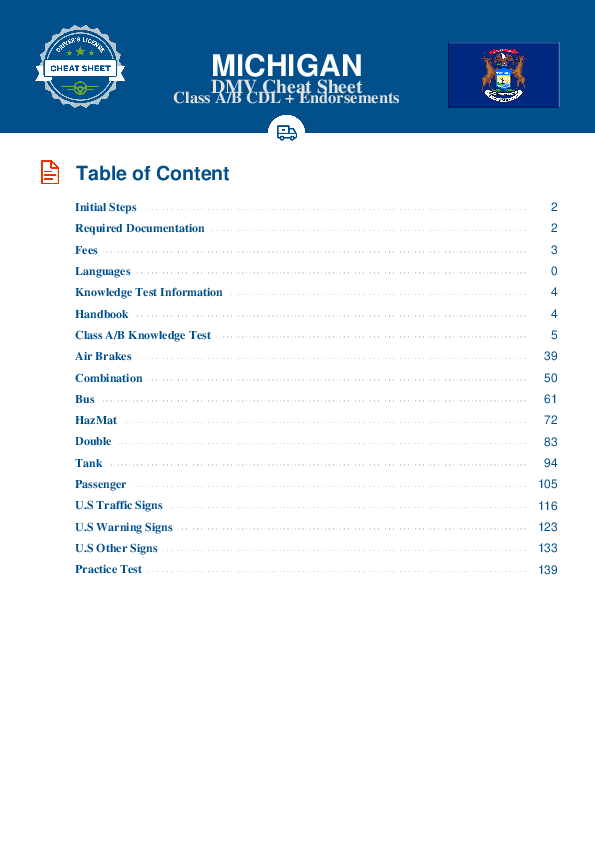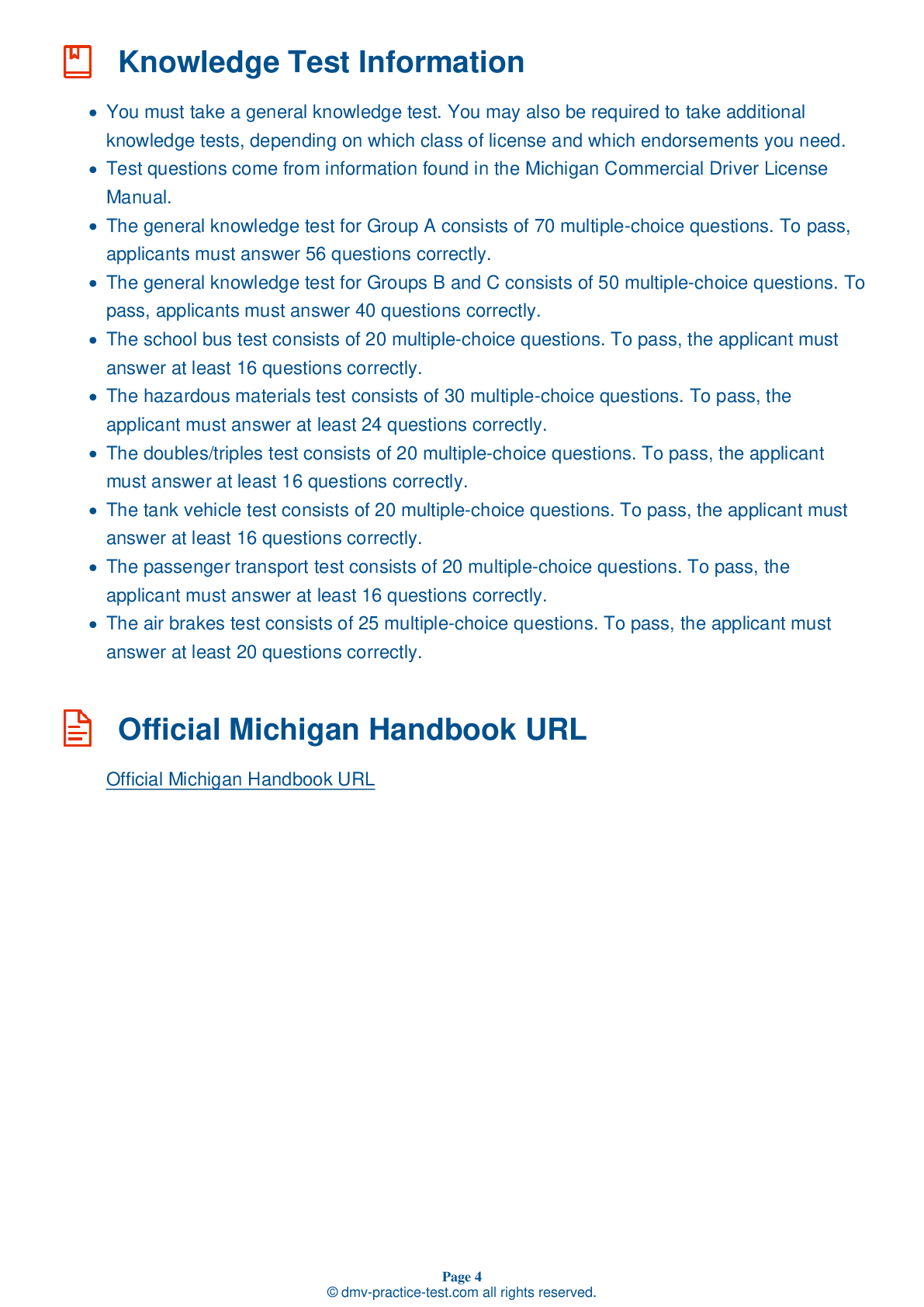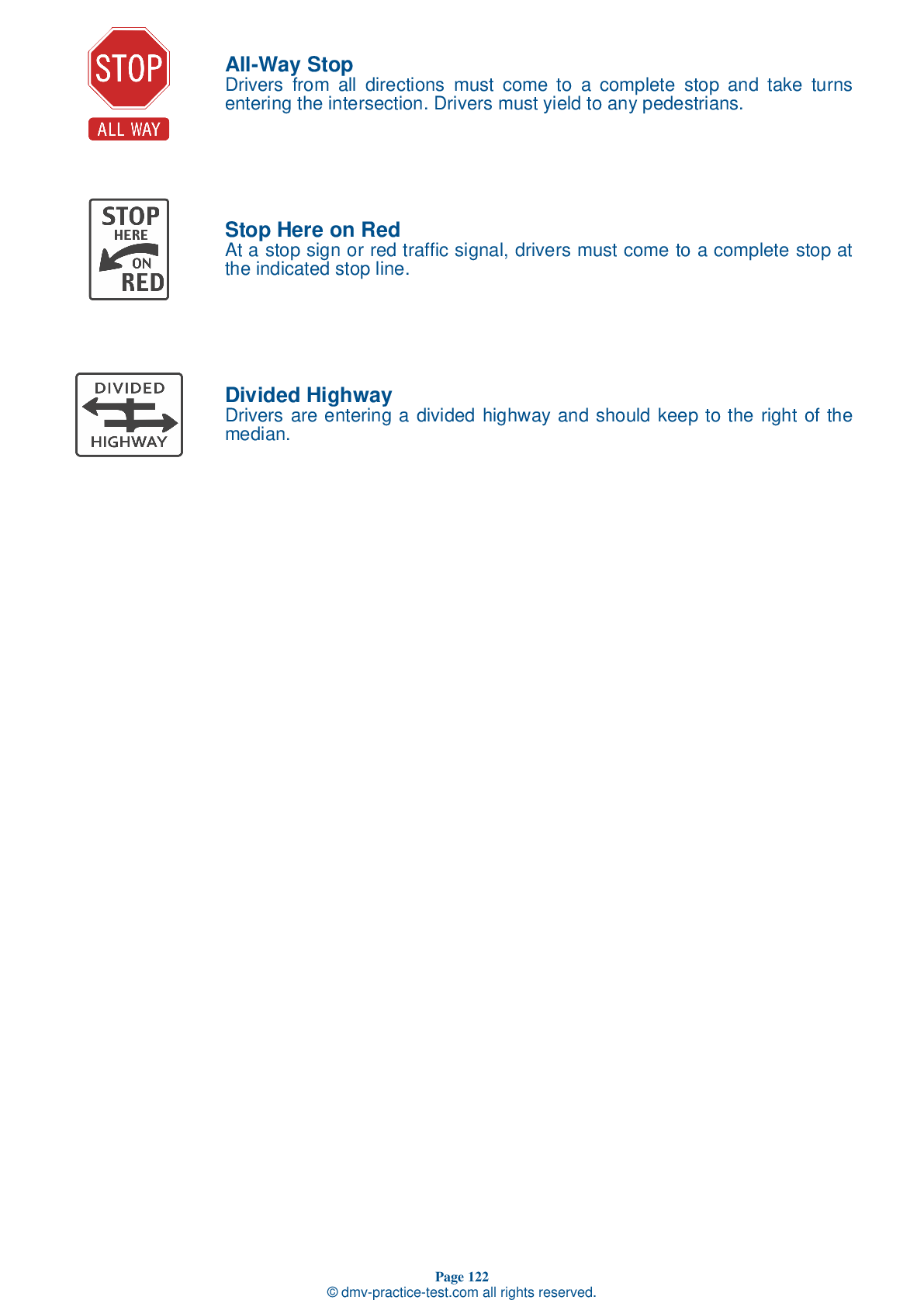Class B Driving Test | Michigan 2026 #1 Page 7 of 7
Train for FREE online with our Michigan class B license test. The official exam test consists of several obligatory parts, with all of them checking your knowledge of different blocks of road rules. If you need to obtain a MI CDL class B permit in 2026, practice as much as possible. Free sample tests published on our website will help you check and improve your knowledge and boost your grades. Please bear in mind that CDL class B requirements may vary from state to state.
43 . When accelerating on a surface with poor traction, such as a wet road, a driver should:
You should accelerate very gradually when driving under conditions that create poor traction.
44 . To avoid a hazard:
In some emergencies, the best strategy for avoiding a hazard may be to drive onto the shoulder. Most shoulders are strong enough to support the weight of a large vehicle.
45 . Containerized loads are used:
Containerized loads are generally used when freight is carried partway by rail or ship. Sealed materials cannot be inspected, but a driver should ensure that the containers do not exceed safe and legal weight limits.
46 . Unsafely reaching for a phone is:
If you must use a mobile phone while driving, it must be in close proximity to you and easily reachable while you are securely fastened into your seat. It is dangerous and non-compliant to unsafely reach for a mobile phone, even if you plan to use a hands-free feature when speaking on the phone.
47 . A seasonal restricted CDL is available to:
A special seasonal restricted CDL is available for agri-business employees operating Group B and C vehicles on routes within 150 miles of their place of business.
48 . When in heavy traffic, the safest driving speed is:
In heavy traffic, it is safest to travel at the same speed as other vehicles. If two vehicles continue to drive in the same direction at the same speed, they cannot hit each other.
49 . If you are convicted of a traffic violation:
If you are convicted of any kind of traffic violation, in any type of vehicle, you must notify your employer within 30 days. You must also inform your motor vehicle licensing agency of the violation within 30 days if the conviction happened in another jurisdiction. This rule does not apply to parking infractions.
50 . What is the Gross Vehicle Weight Rating (GVWR)?
A Gross Vehicle Weight Rating (GVWR) is the value specified by the manufacturer as the loaded weight of a single vehicle.
See the exact questions that will be on the 2026 Michigan DMV exam.
99.2% of people who use the cheat sheet pass the FIRST TIME
Lillian MCcranie explains how our CDL study guide was helpful in passing the exam and recommends it to everyone.
Cameron tells us how he purchased the CDL exam, and found it to be a useful tool which helped him pass the exam and find a job.



